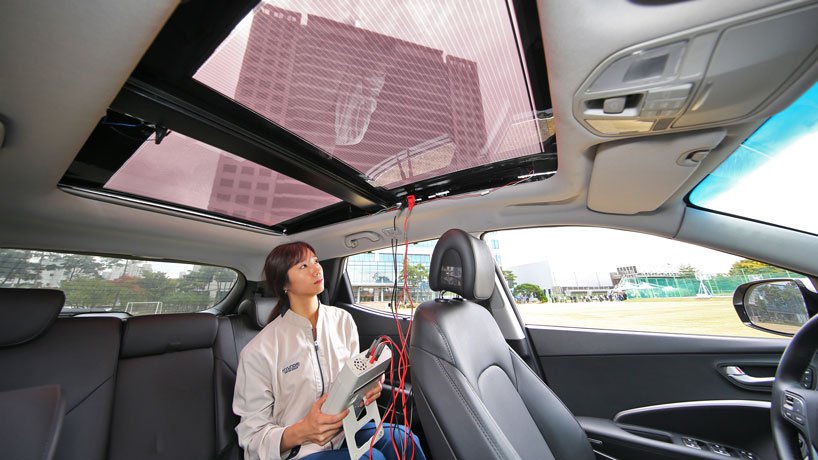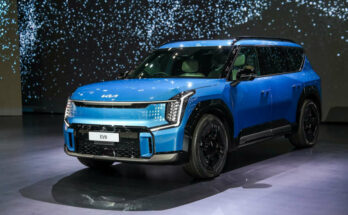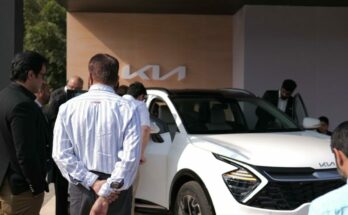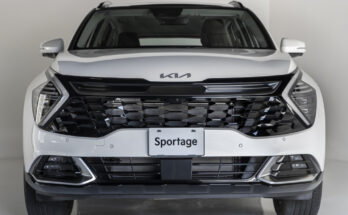Hyundai and Kia have unveiled plans to install “solar roof” charging on a number of Hyundai Motor Group vehicles. In an announcement the South Korean automaker said that electricity generating solar panels would be incorporated onto either the roof or the hood of vehicles.
Related: Nissan Unveils Brain-to-Vehicle Technology to Prevent Accidents
The plan is for the panels to supplement hybrid, internal combustion engine and battery electric vehicles with extra electrical power. According to company, this will help to increase both range and fuel efficiency as well as reduce carbon dioxide emissions.
Three kinds of solar roof charging systems are being developed.
The first-generation system, which is set to be launched from 2019, is being developed for hybrid vehicles. This system includes a structure of mass-produced silicon solar panels that are mounted on an ordinary roof. this system can charge 30 to 60% of the battery per day, depending on the weather condition and the environment.
Related: India to Enforce BS-VI Emission Standards by 2020
The second-generation system is for internal combustion engine vehicles and will feature a semi-transparent solar roof. It will be for the first time such technology will be paired to internal combustion engines. The system provides transmissive panel options, also satisfying consumers who desire a sense of openness. The semi-transparent solar panels are applied to a panoramic sunroof, maintaining transparency whilst charging an electric vehicle’s battery or an additional battery mounted on an internal combustion engine vehicle.
Hyundai said the third-generation system was undergoing testing. The idea is for it to be added to the hood and roof of battery electric vehicles. The system is composed of a solar panel, a controller, and a battery. Electricity is produced when solar energy from the sun touches the solar panel’s surface, which converts this by using photons of light from the sun and then creating the electron-hole pairs in silicon cells to generate solar electricity.
Related: Genesis G70 Gets World’s First 3D Instrument Display
Jeong-Gil Park, the Hyundai Motor Group’s executive vice president of its Engineering and Design Division, said in a statement:
“In the future, we expect to see many different types of electricity-generating technologies integrated into our vehicles. The solar roof is the first of these technologies, and will mean that automobiles no longer passively consume energy, but will begin to produce it actively.”
Hyundai plans to introduce the technology in its vehicles as soon as 2019.

A computer animation professional with over 23 years of industry experience having served in leading organizations, TV channels & production facilities in Pakistan. An avid car enthusiast and petrolhead with an affection to deliver quality content to help shape opinions. Formerly written for PakWheels as well as major publications including Dawn. Founder of CarSpiritPK.com






